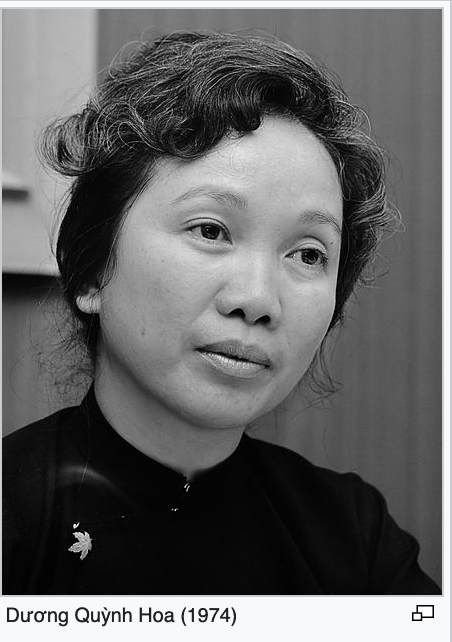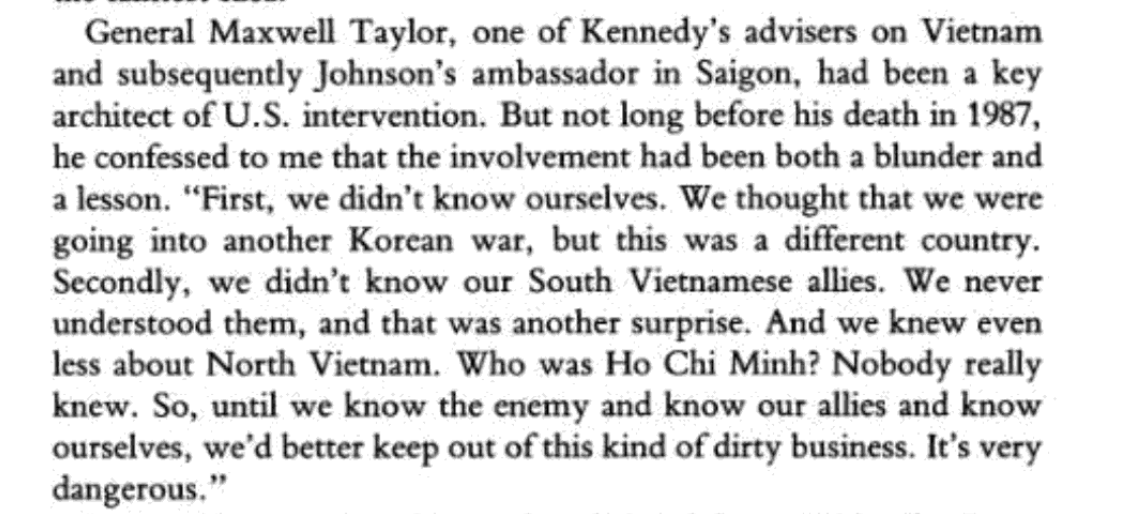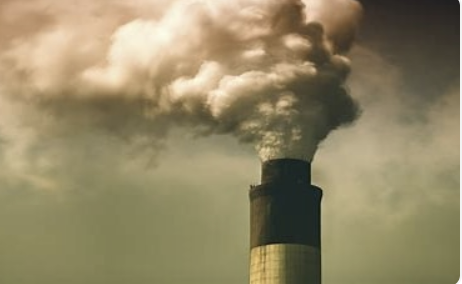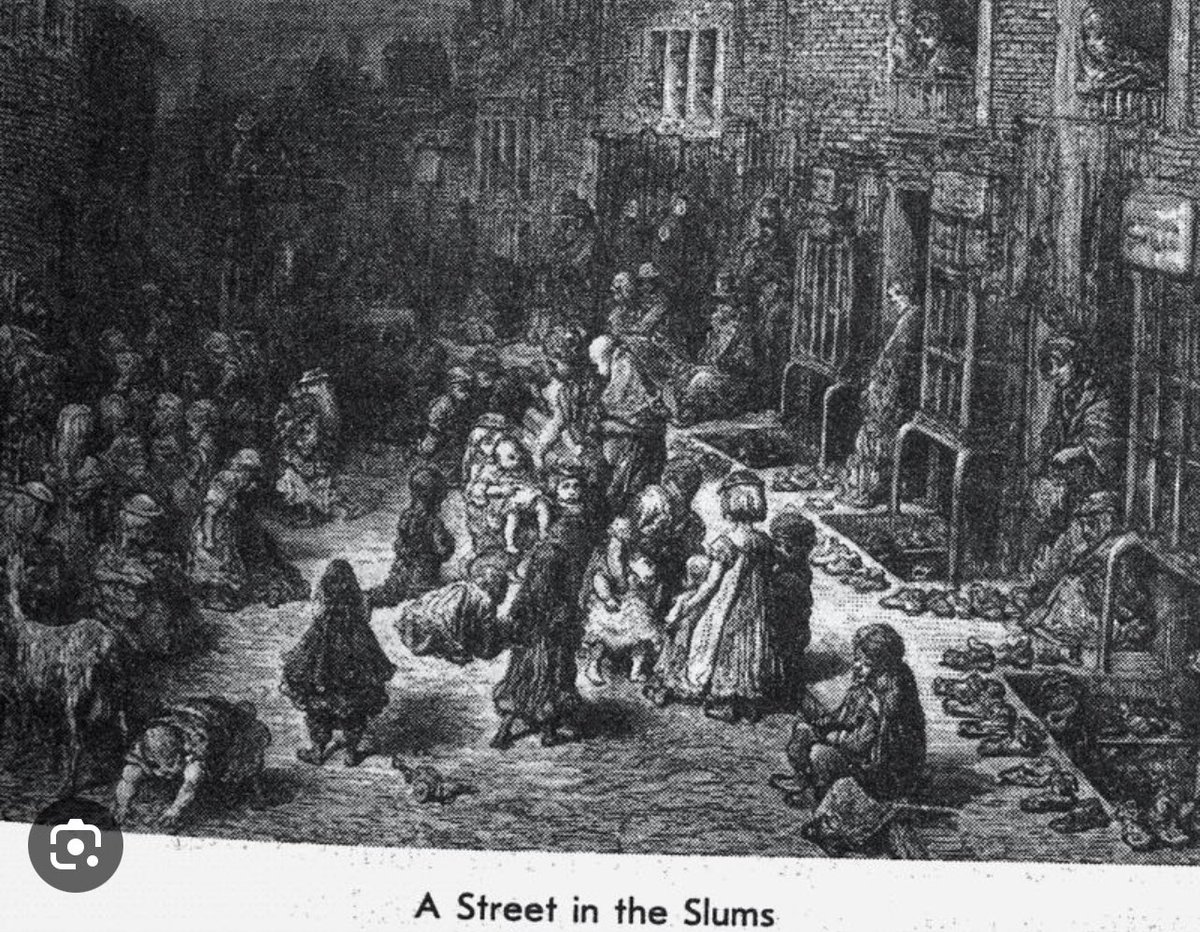Lessons for Afghanistan (and Covid). In 1986 I visited Vietnam and met Dr Duang Quynh Hoa, paediatrician and former Minister of Health in the communist regime. She showed me a ward full of malnourished children and criticised her own government. (1) 

I learned much abt the Vietnam war by reading the historian Stanley Karnow who concluded that the USA had lost the war before it began. They fought an ideological war, but lost to nationalists who simply wanted foreigners out. Many US supposed allies were VietCong spies.(2) 

But Karnow reported the lessons gleaned from interviews with defeated US generals. How you need to know your enemies and allies. (3) 

How the architect of the war, Robert McNamara, used data and modelling to convince himself the US were winning...(5) 

And how the victors of war face a miserable peace. Karnow also interviewed the paediatrician + Vietcong spy Dr Hoa, who realised that victorious Hanoi communist generals created an equally inept government causing mass childhood malnutrition. (7) 

30y later Vietnam has created a stable + prosperous state + shown the world how to respond effectively to the Covid crisis. Afghans face a grim future under the Taliban. We must hope a more disciplined, uncorrupt, educated group enter government, without foreign interference. (8) 

• • •
Missing some Tweet in this thread? You can try to
force a refresh





















